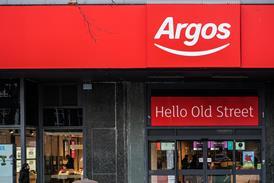Recent weeks have seen increasing evidence of authorities making decisions by decree that should be legislated for. Most recently and most worryingly is the decision by police and Trading Standards in Ipswich and Sussex to impose their judgement on retailers’ ability to sell strong lager and cider - perfectly legal products.
We all have concerns about aspects of our society and particular activities and their effects: violent video games, top-shelf adult magazines, gambling. But we should not sanction the sort of actions taking place. Retailers are not responsible for the ills of society unless they are doing something illegal such as selling products to underage consumers or selling counterfeit or duty defrauded products.
It appears, however, that retailers are an easy target for this creeping local level of authoritarianism. The reports highlight that the voluntary scheme is anything but. The implications for those who don’t voluntarily comply with the suggestion of the authorities are positively Stalinesque: a promise to review suitability for a licence and impose Big Brother levels of surveillance on decent, law-abiding retailers.
” Do we really want the sort of society we see in Russia and China?”
Surely we are talking about political cowardice here? We elect a government to decide on our behalf the laws that should govern our country and we have the opportunity at the ballot box to review their suitability to do so every five years. They are responsible for deciding what products are available for the public to buy, and that decision should then surely apply nationally.
They are clearly not confident in their arguments in this area or else do not agree with the stance of their Trading Standards and police officers. In either case, the actions now being taken are draconian and oppressive. Indeed, if they are convinced of the strength of their case, why not discuss the matter with the brand owners?
One suspects that they know they would be faced with the formidable resources of multinational brand owners. By tackling independent retailers, action has been taken against the easiest and least-resourced target.
Do we really want to replicate the sort of society we see in Russia and China, where the ability to impose local legislative and bureaucratic conditions is a licence to personal wealth and endemic corruption? What other products can we expect arbitrary voluntary controls to be applied to, and by whom?
This situation relies on the expectation that retailers can be browbeaten into compliance, and one sympathises with the retailers who do not feel they can rock the boat. But this seems like the thin end of a substantial wedge, which has implications for all unless we question it now.
Steve Parfett is chairman of AG Parfett & Sons



















No comments yet